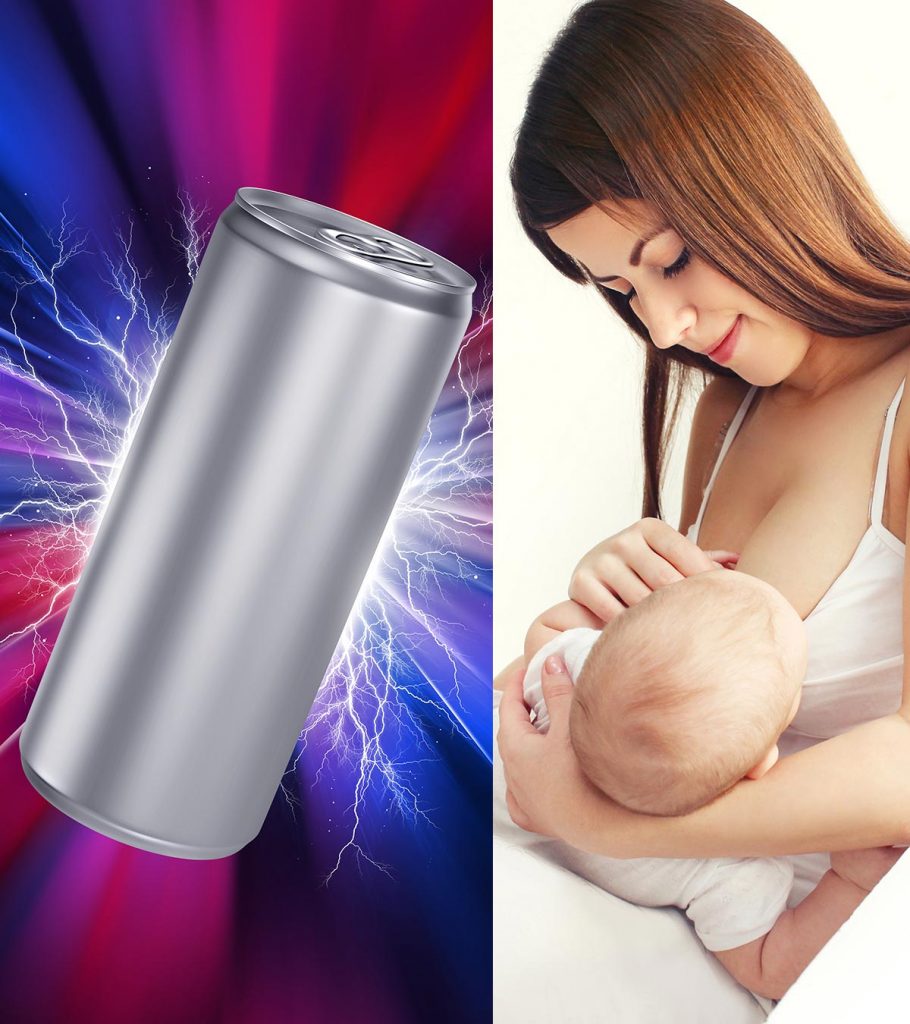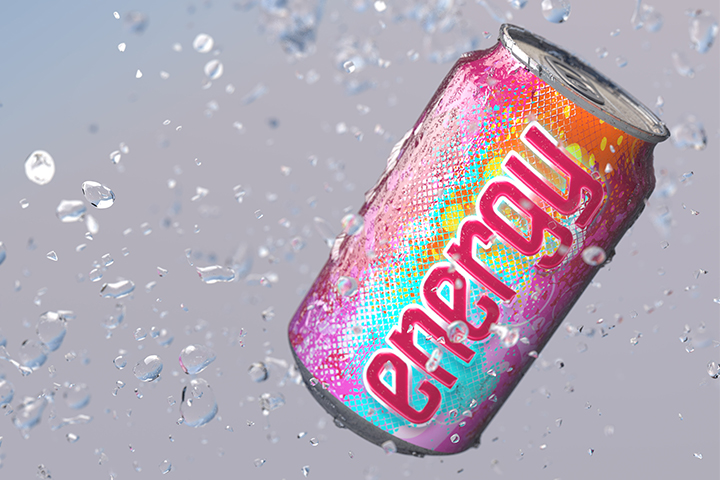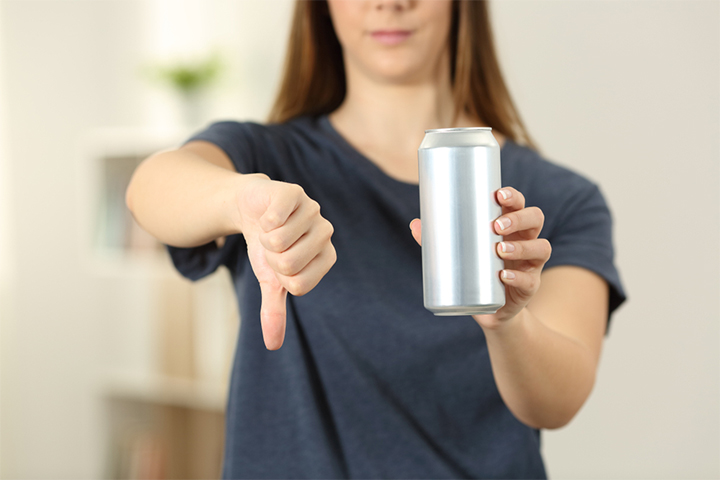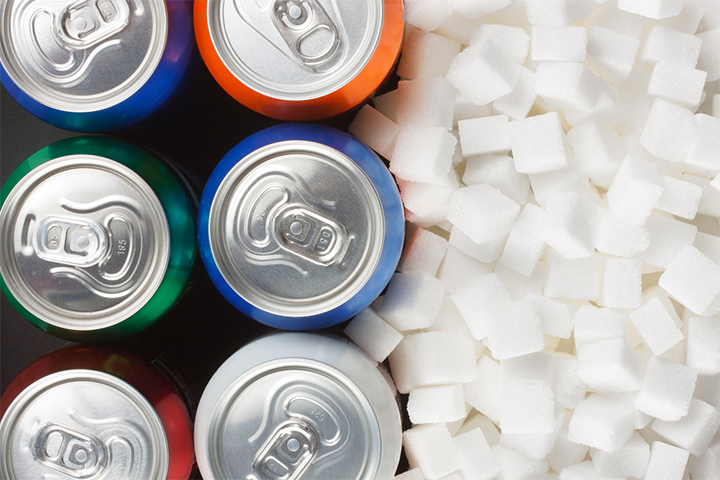Energy drinks are caffeinated beverages marketed as wonder products that increase stamina, boost concentration, and combat muscle fatigue (1). Since these claims are enticing, you may be tempted to consume energy drinks when breastfeeding to fight lethargy. However, you should understand the ingredients of these drinks before making a choice.
Since drinks aren’t healthy, regular consumption may affect you and your baby. Hence, pausing and contemplating your choices before reaching for an energy drink is worthwhile if your baby is still breastfeeding.
Keep reading to learn more about whether energy drinks are safe for nursing mothers, their ingredients, and better alternatives.
What Is An Energy Drink?
An energy drink is a beverage that is rich in caffeine and sugar. As per the ad blitzkrieg, the drink provides instant energy and stimulation. It may be carbonated or non-carbonated. Some energy drinks contain herbal extracts as well as amino acids (2).
Is It Safe To Have Energy Drinks While Breastfeeding?
Yes, you can consume energy drinks while breastfeeding. Read the label carefully and opt for energy drinks with less than 300 milligrams of caffeine. Excessive caffeine intake can negatively affect both you and your baby, so it’s important to be mindful of your consumption. It all comes down to moderation, just like drinking coffee while breastfeeding. The International Sport Society recognized that the ingredients in energy drinks need further studies to establish their safety (3).
Read on to know more about the ingredients used to make these energy drinks.
Ingredients Present In Energy Drinks
1. Caffeine
Caffeine is a stimulant and an ergogeniciXSomething that enhances performance. compound that raises the heart rate and blood pressure (4). The US Centers for Disease Control and Prevention (CDC) recommends a maximum daily intake of 300mg of caffeine for a breastfeeding mother (5). An energy drink usually contains 80-150mg of caffeine per eight ounces, which is equivalent to five ounces or approximately 140 grams of coffee (1).
If you are having coffee or any other caffeine-containing drinks, and also consuming an energy drink, you might be crossing the maximum threshold of caffeine intake.
Research suggests that if a baby is caffeine sensitive, consumption of a higher quantity of caffeine might cause fussiness, irritability, and inability to settle in the baby. This might lead to poor feedings, as well (6). Hence, it is wise to avoid large doses of caffeine while breastfeeding.
Caffeine Content In A Few Energy Drinks
| DRINK | Serving Size (Oz.) | Caffeine content (mg) |
|---|---|---|
| Red Bull | 8.4 | 80 |
| Monster Energy Drink | 16 | 160 |
| 5-Hour Energy | 2 | 200 |
| Mountain Dew Kick Start | 16 | 90 |
| NOS Energy Drink | 16 | 160 |
| Rockstar Energy Drink | 16 | 160 |
| V8 Fusion Energy Drink | 8 | 80 |
| Starbucks Tripleshot Energy | 15 | 225 |
| Starbucks Refresher, Can | 12 | 50 |
Source: Center For Science In The Public Interest (7)
2. Other Ingredients
A few other ingredients present in energy drinks may also pose problems when the beverages are consumed excessively. The ingredients are to consider are:
- Sugars are the second most common ingredient in energy drinks. High-fructose corn syrup or sucroseiXSugar composed of glucose and fructose.acts as the main source of energy in these drinks. Long-term exposure to these sugars is associated with insulin resistance and obesity in the consumer. Also, fructoseiXA simple sugar found in plants, also known as fruit sugar. might pass into breastmilk (8).
- Taurine is a sulfur-containing essential amino acid found in energy drinks (9). Breastmilk has high amounts of taurine, so breastfeeding mothers will not require its supplementation (10). However, the effects of taurine ingestion on babies via energy drinks are not well-documented.
- Herbs like ginseng and ginkgo bilobaiXA plant native to China rich in antioxidants and has anti-inflammatory properties. are found in some of the energy drinks. Both these herbs are generally regarded as safe (GRAS) for consumption. However, their safety and efficacy while breastfeeding are unknown (11) (12).
Apart from these, energy drinks also contain a few other ingredients such as guaranaiXA plant native to the Amazon that is a common ingredient of energy drinks. , l-CarnitineiXA chemical produced in the human brain, liver, and kidneys that helps turn fat into energy. , and antioxidants. The efficacy and safety of these ingredients during lactation are debatable. Moreover, the FDA does not warrant manufacturers to label the quantity of most of the ingredients in energy drinks. The only requirement stated is to list them as an ingredient.
Since the side-effects of these ingredients are not known, it is wise to consult your doctor if you are keen on having an energy drink while you are breastfeeding. If your doctor approves it, limit the intake to 16oz a day.
Alternatives To Energy Drinks
As the safety and efficacy of energy drink consumption during lactation stand questionable, it is suggested that lactating mothers consider these safer alternatives.
- Go for a cup of coffee (not more than two cups a day) or tea. Small amounts of caffeine in them can boost your energy without harming your baby. This way, you can cut down on many herbal ingredients and loads of added sugars in energy drinks. Remember to limit your caffeine intake to 300mg a day.
Note: Even this little amount of caffeine can be too much for some infants. Just observe your baby and go as per his reaction.
- Try healthy and natural juices and soups with a well-balanced meal. They could help in keeping your energy quotient high, prevent dehydration, and boost your immunity. Follow a balanced diet, drink water, and get some sunlight to rejuvenate your body.
- Powernaps could help in fighting weakness and gaining extra energy.
- Try and follow an exercise routine after consulting your doctor to build your stamina gradually.
You may use Ayurvedic medicine for kids as a natural treatment for different health conditions and overall growth and development. However, similar to most therapies and medicines, it should be considered only after consulting an Ayurveda expert to avoid adverse reactions, such as allergies or toxic reactions. By analyzing the child’s body constitution, and condition, the expert will recommend the right medicine and some lifestyle changes for effective treatment.
Key Pointers
- Energy drinks are highly caffeinated drinks with other stimulants that can pass into breast milk.
- Commercially available energy drinks have large amounts of sugar which may lead to weight gain and other health issues in lactating women.
- It is advised to keep the consumption in the limit as it may cause fussiness and irritability in babies in case of sensitivity.
- It is recommended to find alternative options in the form of healthy drinks such as natural juices and soups to retain energy levels while breastfeeding.















